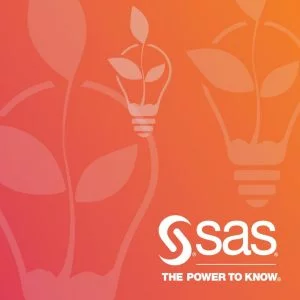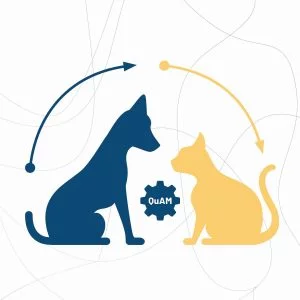
Bayesian Methods for Machine Learning
FREE
People apply Bayesian methods in many areas: from game development to drug discovery. They give superpowers to many machine learning algorithms: handling missing data, extracting much more information from small datasets. Bayesian methods also allow us to estimate uncertainty in predictions, which is a desirable feature for fields like medicine. When applied to deep learning, Bayesian methods allow you to compress your models a hundred folds, and automatically tune hyperparameters, saving your time and money. In six weeks we will discuss the basics of Bayesian methods: from how to define a probabilistic model to how to make predictions from it. We will see how one can automate this workflow and how to speed it up using some advanced techniques. We will also see applications of Bayesian methods to deep learning and how to generate new images with it. We will see how new drugs that cure severe diseases be found with Bayesian methods. Do you have technical problems? Write to us: coursera@hse.ru National Research University – Higher School of Economics (HSE) is one of the top research universities in Russia. Established in 1992 to promote new research and teaching in economics and related disciplines, it now offers programs at all levels of …
Instructor Details
Courses : 1
Specification: Bayesian Methods for Machine Learning
|
50 reviews for Bayesian Methods for Machine Learning
Add a review Cancel reply
This site uses Akismet to reduce spam. Learn how your comment data is processed.

FREE







Milos V –
As PhD in physics I found lecture super boring (too much theory and derivation) and irrelevant to the practical assignment. On the other hand, most of practical assignments are explained very pedagogical manner (except week 5!). As for the first course I would recommend more code related lectures.
Ahmad –
Not structured well
RLee –
The only solid online course on Bayesian ML methods!
Jordi W –
This is a challenging course, but well worth it! One needs to be able to manage both the lecture content and the practical side of the course, namely the Python modules/environment. The Python ecosystem is developping fast and some modules changed since the assignments have been created. This means that you need to be able handle deprecations within Python modules and your own Python environment if needed. But this is an advanced course, so I think that is fine. Things have been made easier now that the course creaters have moved assignments to Colaboratory.
Francois L –
Very tough but very interesting
Erwin P –
This course provides a comprehensive overview how Bayes stats can be used in ML. I’m better able to value the different concepts like EM, GP and VAE and put them into perspective. Depending on you previous math and stats skills the assignments can be challenging and it took me some stamina to complete. The “Russian English” is sometimes a bit of a hurdle when watching the videos, but you get used to it. The concepts are well explained and the references to the additional materials useful.
Maciej –
Overall it’s good. My problem is that most of this material is better suited to lecture notes and not a video. They’re forcing it into a video since it’s coursera. Couldn’t get through a lot of the lectures, used a textbook instead.
Karishma D –
Lots of maths! :). Assignments were very interesting as well. But overall, this has been my favourite course so far. I like how in depth the lectures went into the maths (made me feel like I was back at uni). However, if I did not have a maths + stats background (from university), I think I would have struggled to keep up with the content Couple of comments though: 1) For the MCMC week, it would have helped my understanding if we had to fit a Bayesian model to a dataset from scratch via our own implementation of Metropolis Hastings for example in addition to using the pymc3 library. 2) For the Gaussian Processes week, it would have helped my understanding if we had to fit a GP to some data via our own implementation in addition to using the GPy library.
Vaibhav O –
Great introduction to Bayesian methods, with quite good hands on assignments. This course will definitely be the first step towards a rigorous study of the field.
Kuldeep J –
Various advanced Machine Learning topics like Bayesian interpretation techniques, probabilistic modelling, variational auto encoders, etc. have been explained in a very intuitive and simple manner. Then the assignments are well designed to make sure one is able to work on the existing packages available.
MASSON –
Good course. Too much theory, not enough practice
Igor B –
A wonderful course to improve the theoretical understanding of machine learning and recap probability theory. The lecturers did their best to drag the listener through the math of the EM algorithm and more. The transition to Google Colab indeed simplified online work with Jupyter notebooks.
Jue W –
Very helpful!
Gary –
Covered many important points in the course.
Harshit S –
Awesome course !
Xinyue W –
Fantastic contents! It explains a lot of concepts that confused me when I started Bayesian machine learning very well.
Mark Z –
This course course teaches you a lot of useful math. It might be hard to understand at times, but you will get through it. Assignments are good for getting to know python tools which implement mathematical concepts described in lectures. Overall the best course I’ve taken so far.
Luke B –
Excellent course! The perfect balance of clear and relevant material and challenging but reasonable exercises. My only critique would be that one of the lecturers sounds very sleepy.
Tirth P –
Mathematically Heavy and highly theoretical course. This makes this course unique and awesome
Beibit –
As the description suggests this course is very advanced and math heavy.
Goh –
Excellent!
Sankarshan M –
very good
Murat O –
A great course to learn probabilistic machine learning!
M A B –
Amazing contents
Daniel T –
The material is good and a lot of effort went into designing this course. Nonetheless, it feels neglected and could use an update. The presentations are somewhat muddled by notational abuse. Indeed, it’s customary to shorthand every distribution as “p” and let the arguments remind you which variable it came from, e.g, p(x|y) is conditional density of variable “X” at x given that “Y” y. But then “p(a|b)” could be a completely different function corresponding to random variables “A” and “B”; however, you could have a x and y b as vectors which amplifies confusion… And when many variables with different ranges are involved and there’s no consistency between labels for the variables and labels for their values, one has to spend extra time deciphering the material. Keeping track of the random variables and adopting a more suggestive notation would go a long way. Also, in Bayesian context it helps to avoid the word “parameter” (other than hyper parameter, maybe), e.g., the weights “w” themselves are just values of a random variable, which is no different than the data generating process or the latent variables. The programming assignments contain a lot of missing or inconsistent instructions. Be prepared to sift through the forums to find what is really expected or how to fix the issues in the supplied code. Overall, I get the impression the course is now maintained by the students. It would be nice to see a revision from the instructors.
Parag H S –
Bayesian Methods for machine learning course was great
Debasis S –
I found it tuff to get everything, but a very good course
Ayush T –
It is undoubtedly one of the best course on Coursera that I’ve come across. This is really well taught and there is a good balance between the theoretical and the practical aspect of the Bayesian Machine Learning. This course is must do for those who want to do some good projects in the field of Bayesian Deep Learning which is currently a hot topic now.
Mehrdad S –
This is a great course for some of the advance topics in Baysian ML. The course starts off great and provides great explanation of the basic topics such as Conjugate, EM algorithm, etc. The related HW are also intelligently designed and fun to solve. But, as it reaches the weeks 5 and 6, things starts to fall apart and the materials are not presented and explained in the best possible way. I think the instructors try to teach many topics which requires a little bit of patience in a short amount of time. Overall, I believe its a course worthy of try, certainly provides great exposure to some of the advance topics but requires further follow ups and studies to completely digest all the materials.
Truong D –
Easy way to approach the Probability
Akhil K –
Very comprehensive & touched upon some very interesting problems!
Igor P –
Excellent course. Definitely touches advanced topics with the due rigor.
Marcos C –
This course was a fantastic intro to modern Bayesian methods. I particularly liked the references to relevant papers and the useful programming assignments. The only negative I would say with this course (and all the courses in the specialisation) is that there is usually not enough density of people taking the course so the peer graded assignments take ages to be graded. I would recommend that these bits are made optional and don’t count towards the final grade.
Alya S –
Very well structured and delivered course. The explanations are generally easy to follow and reproduce. Highly enjoyable and instructive. Assignments are relevant. It would have been great to have an assignment for the Dirichlet Allocation this would have improved the overall understanding of the algorithm. Overall very satisfied I took this lecture. Thanks very much to the lecturers.
Luka N –
Too many probability concepts with too little examples and areas where one can apply them. Also, some steps in the computation are skipped which makes it harder for the learner to understand them. I spent hours trying to figure them out and get the result teachers have got on videos.
Stephane H –
Great course, quite hard.
Marcin L –
The course was great, I’ve learned a lot about Bayesian perspective on Machine Learning. The level was satisfying, tasks and quizzes were demanding. It has been very interesting material to learn about. I would give 5 stars, but eventually gave 4 because it had two drawbacks. First is, assignments are written in tensorflow v1, and occasionally there were issues with compatibility in some libraries. I don’t know when the codes were last time refreshed, but unfortunately open source technologies tend to become deprecated very quickly, and the time has already affected course materials. Secondly, some of the most important derivations were made on blackboard, and are not included in downloadable slides. I would really like to keep them in some files, but the’re not available. Apart from these minor drawbacks, it’s still a great course and definitely worth learning from.
Debasish G –
This is one of the bets and advanced courses on machine learning that I have done so far. Loved the math part and the programming part. This course has the best coverage of expectation maximization algorithms that I have seen so far. Absolutely loved the course.
Roshan C –
The best course to learn about maths behind the optimization and also helped to clarify the mathematics lies behind
Husain B –
Amazing course, take you from brief to advance level concepts of bayesian stats and methods.
RITICK G –
gfhgngfbfv
Tim v d B –
The first exercises are sessions are fun and very good. However, the last exercise is a catastrophy. Conflicting instructions. Once I should upload a HTML version but nobody says who. Then suddenly the rules are changed and it is supposed to upload it some google cloud. This platform is qute annoying. Either I cannot edit my work any more or suddenly it just disappears. The editor is also very bad. This is just unfair. Really the technical problems in the final project are too extreme.
Kiran K R –
This is the best introductory course that is available for Bayesian deep learning.
Thomas F –
Great introduction to Bayesian Inference. The final project is fun but maybe a little too easy. If you are looking for deeper math understanding, you will need to do more research on your own but the course gives you many references to look into. Definitely a must have!
Pablo V I –
One of the most technicals and high quality MOOCs I have completed. You need prior knowledge about machine learning and bayesian statistics to complete the assignments. I highly recommend this course for people working in the industry or researchers. If you are looking for a challenging course, this is your choice.
Dipanjan D –
.
P C –
The course covers a lot of very advanced material and is a great starting point for Bayesian Methods, but it would greatly benefit from having additional reading materials.
Novin S –
I really enjoyed taking this course. The quality of lectures and material were really good, and it was advanced topics as promised. The theories were addressed sufficiently with examples from the real world which made the course not only theoretically interesting but also practically applicable and useful. There have been tiny issues here and there, either during the homework assignments or the material but I hope those will be fixed together with new updates to the course to keep it up to date with the state of the art of the research in the field of Machine Learning.
Chen Z –
Its a really good course, I learnt a lot
Maxim V –
Amazing course, an absolute must! Only some programming assignments were having minor issues.